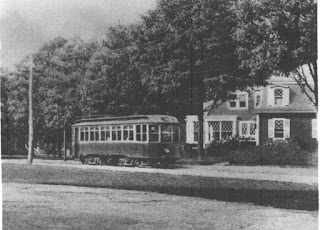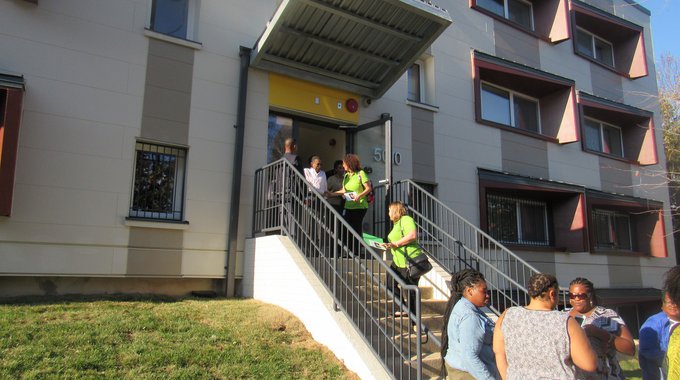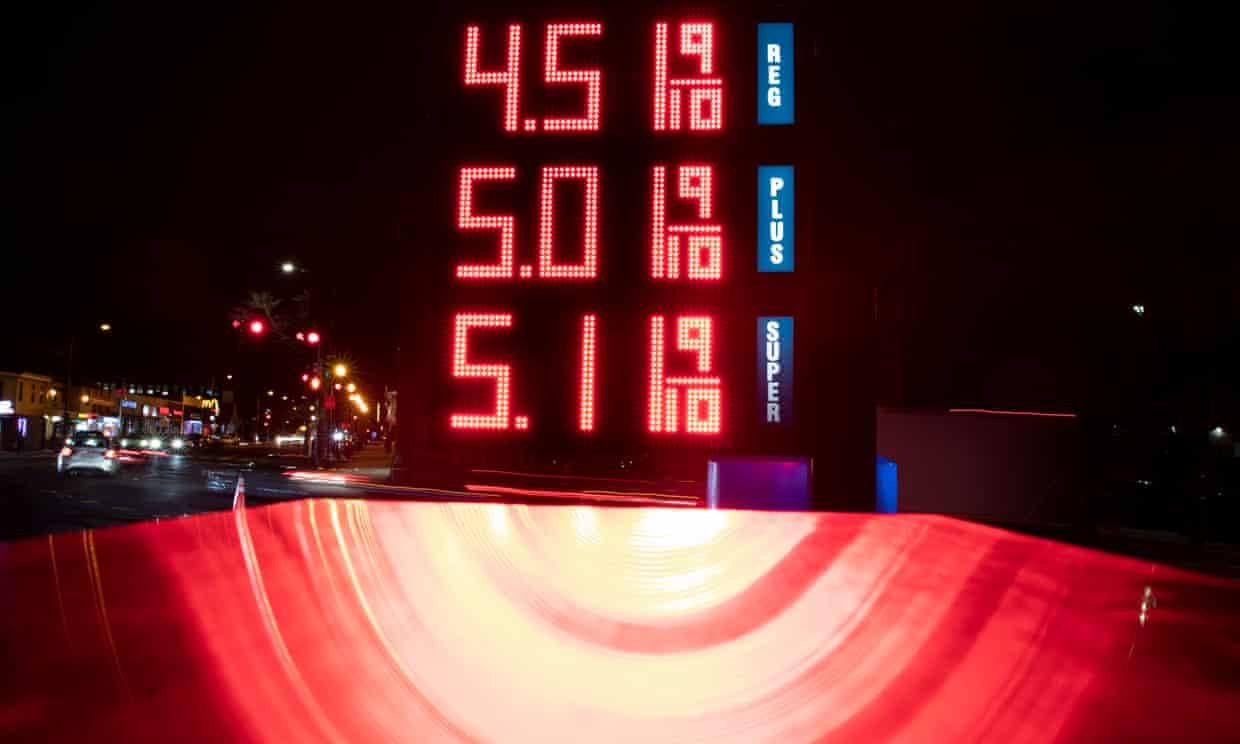Senate Passes Major Climate Bill
Package also includes bills focused on home heating oil and public land protection
Amid alarming reports by the Intergovernmental Panel on Climate Change, the Massachusetts Senate on Thursday passed a major bill, S.2819, An Act Driving Climate Policy Forward, or the Drive Act. The bill addresses climate change in three primary areas—clean energy, transportation, and buildings—with the aim of achieving the Commonwealth's ambitious goal of reaching net-zero emissions by 2050, which the Legislature codified into law in 2021.
"Combatting climate change requires an honest assessment of the challenges before us, and constant work to change the course we are on," stated Senate President Karen E. Spilka (D-Ashland). "I'm proud to say that the Senate has never shied away from either, and that we continue to lead on taking action to combat climate change. The Drive Act takes important steps to expand clean energy, encourage the adoption of electric vehicles, reduce emissions from the building sector, and foster a workforce for our future, while two additional bills will help homeowners dealing with oil spills and protect open spaces. I'd like to thank Senators Barrett, Creem, Gobi and Eldridge, Senate Ways and Means Chair Rodrigues, and all of Senators who offered amendments to make this climate package stronger."
"Today's passage of an Act Driving Climate Policy Forward is a reflection of the Senate's strong commitment to an all-hands-on deck approach to boldly confronting our climate challenges head on," said Senator Michael J. Rodrigues (D-Westport), Chair of the Senate Committee on Ways and Means. "Thank you to the Senate President and her team for their leadership and guidance, and thank you to Senator Barrett, Senator Creem, their staffs, the Senate Ways and Means team, and all the members of the Senate for lending their voices and contributions throughout this process. With the passage of this comprehensive climate package, we are another step closer to ensuring the Commonwealth meets its ambitious goal of net-zero carbon emissions by 2050."
"We know climate change is relentless, so we think Massachusetts needs to be relentless, too," stated Senator Mike Barrett (D-Lexington), Senate Chair of the Telecommunications, Utilities and Energy Committee. "No one's around to give out 'A's' for effort. What matters are results. An Act Driving Climate Policy Forward pushes back against global warming on multiple fronts, and with an emphasis on innovation and smart experimentation. It's about thinking long-range but executing now, in the short term. It's about problem-solving, confidence, and even optimism."
"The Drive Act will help Massachusetts reach net-zero emissions by 2050 by paving the road to clean transportation, clean buildings, and clean electric and thermal energy," said Majority Leader Cynthia Creem (D-Newton), Chair of the Senate Committee on Global Warming and Climate Change. "It is an impressive achievement, one that should give every resident of the Commonwealth hope about our ability to mitigate climate change. I'm grateful to every member of the Senate who contributed to this landmark legislation, and especially to Senate President Spilka, Chair Rodrigues, and Senator Barrett for their steadfast commitment to addressing climate change."
Around 20 per cent of greenhouse gas emissions in Massachusetts come from the power plants that fuel its energy grid, making support for clean energy alternatives necessary to meet the Commonwealth's goal of having net-zero greenhouse gas emissions by 2050. Recognizing this, the Drive Act includes significant provisions to deploy clean energy infrastructure, including those related to offshore wind energy, solar energy, and energy storage. Acknowledging the importance of growing the Commonwealth's green economy, this bill allocates $100 million to a Clean Energy Investment Fund to support infrastructure development in the clean energy industry.
To assist with the financial viability of offshore wind energy projects, this legislation updates the procurement process for new offshore wind energy investments to ensure that the Commonwealth receives as many competitive bids as possible, that all projects maximize equitable economic development opportunities, that environmental impacts are mitigated, and that ratepayers are protected throughout the process. The bill also provides more flexibility to offshore wind developers by adjusting the existing price cap for offshore wind projects, allowing for price increases of up to 10 per cent of the previous procurement. It also require that any increase in price must be the result of economic development investments for low- and middle-income populations and diversity, equity and inclusion programs. This crucial change will give offshore wind developers more flexibility, protect ratepayers from significant price increases, and ensure that offshore wind investments support equitable economic development in the Commonwealth.
To support the advancement of solar power, the bill permits agricultural and horticultural land to be used to site solar panels, eliminates the so-called 'donut hole' for on-site solar energy net metering to promote residential solar; and requires the Department of Energy Resources (DOER) to make recommendations for the successor program to the current SMART solar incentive program.
In addition to wind and solar power, the bill addresses other innovative sources of clean energy such as fusion and geothermal power, and amends Massachusetts law to ensure that the state can consider potential options for the development of safe, clean energy sources. Acknowledging the harmful health and environmental impacts of biomass facilities, this legislation removes biomass from the list of energy-generating sources that are allowed to receive state incentives for clean energy. To ensure that the Commonwealth has adequate storage systems to accommodate all the clean energy that Massachusetts will be adding to its energy portfolio, this bill directs a study of how to optimize the deployment of long-term energy storage systems.
As the transportation sector is the largest source of fuel emissions in Massachusetts, the bill takes steps to encourage the use of electric vehicles, including codifying into statute, expanding, and allocating $100 million for the state's MOR-EV electric vehicle incentive program, which provides rebates to individuals who purchase electric vehicles.
Under the Drive Act, the rebate amount will increase by $1,000, to $3,500, for passenger cars and light-duty trucks. Moreover, electric vehicle purchasers who trade in their emission-producing vehicles will be eligible for an additional incentive of $1,000. For the first time, rebates provided through the MOR-EV program will be administered at the point of sale, rather than through a rebate that can take up to 90 days to receive. The bill also makes used vehicles eligible for rebates. Further, the bill directs the department of energy resources to conduct an outreach campaign to promote awareness about the MOR-EV program among consumers and businesses in underserved and low-income communities, as well as in communities with high proportions of high-emission vehicles.
To expand access to electric vehicle charging stations, this bill convenes an interagency coordinating council to develop and implement a charging infrastructure deployment plan, and allocates $50 million to this coordinating council to deploy charging infrastructure in an equitable and comprehensive manner.
The Department of Public Utilities (DPU) would be required to set vehicle electrification and greenhouse gas emission requirements for electric vehicle companies. In addition, to ensure that zero-emission vehicle charging remains affordable for consumers, the bill requires all electricity companies to submit proposals to the department of public utilities for how they will offer reduced electricity rates for consumers who charge their zero-emission vehicles at off-peak times.
Finally, the bill takes historic steps to address emissions that come from MBTA bus fleets. Starting in 2028, this bill would require every passenger bus that is purchased or leased by the MBTA to be a zero-emission vehicle. By the end of 2040, the MBTA would be required to operate exclusively zero-emission vehicles. Underserved and low-income communities would be prioritized for the equitable deployment of these zero-emission buses.
Amendments adopted during the debate include those to:
- Allow the MOR-EV program to offer an additional $1,500 rebate for low-income individuals;
- Require the state to examine historic and present participation of low- and moderate-income households in the MOR-EV program and recommend strategies to reduce disparities in uptake;
- Require the MBTA to develop and implement short-, medium-, and long-term plans for electrifying the commuter rail fleet, with new purchase of diesel locomotives to be phased out in the coming years;
- Require MassDOT to assist Regional Transit Authorities (RTAs) in creating an Electric Bus Rollout Plan for transitioning to zero-emission bus fleets; and
- Direct the state to prepare a report on the estimated cost of converting school buses to zero-emission vehicles, as well as recommendations on how to structure a state incentive program for replacing school buses.
To tackle the difficult issue of emissions from the building sector, the bill creates a 10 municipality demonstration project allowing all-electric building construction by local option. Participating municipalities must receive local approval before applying into the demonstration project.
The Drive Act makes targeted enhancements to the Mass Save program, which provides rebates and incentives for owners and renters related to efficient appliances and other home energy improvements. Under the bill, priority for Mass Save projects will be given to those that maximize net climate, environmental, and equity impacts. Beginning in 2025, Mass Save funds will also be limited in most instances from going to any fossil fuel equipment.
This bill requires the DPU to conduct an adjudicatory proceeding prior to approving any company-specific plan under the DPU's future of heat proceedings. In addition, the bill requires DPU to convene a stakeholder working group to develop regulatory and legislative recommendations for how Massachusetts can best align the Commonwealth's gas system enhancement program with the state's 2050 net zero goal. The working group must submit its final recommendations to the Legislature by July 31, 2023.
Amendments adopted during the debate include those to:
- Require utility companies to report to the state annually the total amount of natural gas and electricity used by large buildings over 25,000 square feet, and for the state to make the data publicly available on a building-by-building basis;
- Require the state to consider the historic and present participation of low- and middle-income households, including renter households, in the Mass Save program, and provide recommendations to promote equitable access and reduce disparities in uptake; and
- Direct electric and gas distribution companies to collect and report on data related to ratepayer bills in communities that are involved in the demonstration project, as well as those who are not.
S.2821: An Act relative to the remediation of home heating oil releases
The Senate also passed S.2821, An Act relative to the remediation of home heating oil releases. Over 650,000 homeowners across Massachusetts use home heating oil to heat their homes. Every year, over 100 of those homeowners report to the Department of Environmental Protection (DEP) that there has been an oil spill associated with their home heating oil tank. These spills can cost anywhere from tens of thousands to millions of dollars to clean up, causing a potential financial crisis for a family.
"I would like to thank the Senate President, Chairman Rodrigues, and Senator Feeney for their steadfast support in moving this bill through the Senate," said Senator Anne M. Gobi (D-Worcester), the sponsor of the bill. "This legislation is a necessity for homeowners' protection and peace of mind. The cost of remediation is expensive and can force residents to seek risky financial maneuvers. It is only fair that the state takes action to protect its citizens from this danger. I am grateful to my colleagues in the Senate, for their unanimous support today. I urge the House of Representatives to move quickly on this legislation; it is in the best interest of the residents of Massachusetts."
The Legislature previously took action on this issue in 2008, adopting a bill that would require release prevention devices to be installed for residential heating oil systems, as well as and mandate all homeowner insurers in Massachusetts to offer coverage for home heating oil cleanups. While this bill made insurance coverage available, it was not successful in leading to high uptake rates. Currently, only seven per cent of homeowners who use home heating oil have insurance coverage for a potential spill. Many homeowners with home heating oil falsely assume that their current policy covers a potential clean up, or are unaware that such insurance coverage exists. This means that every year, hundreds of families are hit with unexpected and expensive cleanup bills that they are unable to cover themselves.
The bill adopted by the Senate today addresses this problem by requiring that all homeowner insurance policies cover a potential home heating oil spill. This is a common-sense measure, considering that homeowner insurance policies already cover other potential risks, including natural gas line explosions. This legislation will help prevent families from having to deal with the tragic situation of paying for the cleanup of home heating oil spills by themselves.
S.2820: An Act preserving open space in the Commonwealth
In addition, the Senate passed S.2820, An Act preserving open space in the Commonwealth. This bill would prevent the loss of natural resource lands that are covered under Article 97 of the Massachusetts constitution. The bill requires that any municipality or state agency that is disposing or changing the use of any Article 97 protected open space must replace that land with comparable land, which would protect open spaces across Massachusetts.
"I am very proud to join my Senate colleagues in passing the Public Land Protection Act to safeguard public lands for future generations," said Senator Jamie Eldridge (D-Acton), the sponsor of the bill. "I'm grateful to Senate President Karen E. Spilka, Senate Ways and Means Chair Rodrigues, and Senate Environment, Natural Resources and Agriculture Committee Chair Becca Rausch for their work on this important environmental bill that will protect open space across Massachusetts."
Since the Drive Act builds off a previous climate bill that was passed through the House, the differences will need to be worked out by both branches before the bill advances to the Governor's desk. The open space bill also amends a similar bill that was passed through the House, and so differences will need to be reconciled on that bill as well. Having only passed in the Senate, the home heating oil spill bill will now go to the House for further consideration.
 |
| Senate Passes Major Climate Bill |
CommonWealth Magazine coverage







